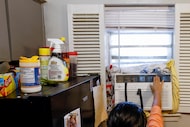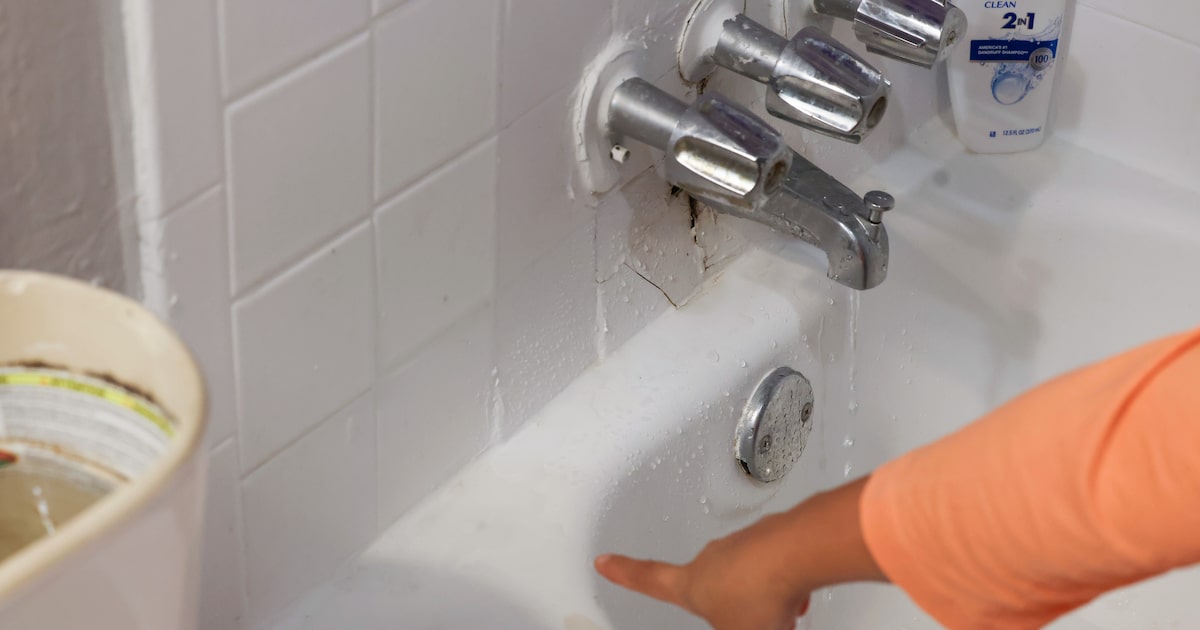All apartment complexes registered with the city of Dallas are inspected at least once every three years to ensure that residents’ living conditions meet city standards.
As of September 2025, there were about 2,129 registered apartment and condominium complexes in Dallas, accounting for 235,882 dwelling units.
Related

The Multi-tenant Inspection and Response program from the Department of Code Compliance conducts the graded inspections. They utilize Chapter 27 of the City of Dallas Code, which establishes minimum property standards to ensure that all “residential buildings, structures, and premises are safe, sanitary, and fit for tenants.”
Breaking News
All properties must be registered with the city, pay a $6 fee per unit and be inspected. Newly constructed properties will receive their first graded inspection five years after the date the certificate of occupancy was issued.
How apartment inspections work
Graded inspections are performed indoors and outdoors at least once every three years; a score of 70 or lower is failing. A perfect score is 100.
Ariel Garcia, the administrator for code specialty divisions, said if the property scores a 95 or 99, it does exceptionally well, and the city doesn’t receive calls or complaints. The city may not come to that property until it gets close to that three-year mark.
But if a property scores a 50, inspectors will return the following year. And even if a property does score a 98 or 99, code enforcement still will come sooner if it starts seeing more confirmed violations, especially related to non-functional air conditioners or water outages.
“Despite them scoring an A plus, we will still come back out to see what happened,” Garcia said. “Because clearly the data shows that there’s been some rapid deterioration that’s going on.”
At least three or 10% of the total units will be inspected, whichever is greater. According to the Code Compliance Department, the units are randomly selected.
When an inspection takes place, the property owner is notified. The city recommends that property managers inform all of their residents in writing of the upcoming inspection at least 24-48 hours in advance.
Staying anonymous
Early this year, the department rolled out a new way for residents to anonymously request that their unit be inspected.
Between two and four weeks before the inspection, Code Compliance staff hang up several flyers in English and Spanish with a QR code for residents to scan and respond to a questionnaire to get their units inspected.
Related

Dallas Area Interfaith urged the city to devise a system that allowed residents to report issues in their units without fear of reprisal. The organization works with community leaders to improve the quality of life for renters and help them organize against landlord retaliation.
“What this does is it allows the tenants to make us aware of issues inside their property. So when we choose a percentage of the property to complete the comprehensive inspection, we can choose their unit without tipping off the property owner that we were contacted,” Garcia said. “It’s more of a covert way that they can let us know that they’re having issues, and thus not put them at risk or any fear of retaliation.”
What Codes Compliance looks for in an inspection
During the inspection, the city evaluates the conditions of the units’ interiors, exteriors and common areas.
In the interior, the inspector looks to ensure that there are no holes in the walls, ceilings, or floors, insect or rodent infestation, the peephole and the deadbolt lock are functioning, there is no exposed wiring around the unit, and the air conditioning and heating systems are working correctly.
The hot water must reach a minimum of 110°F, and there should be no water leaks in the sink, tub, or shower, missing tile, or water leaks at any time. They also check that smoke detectors are installed and working properly and that the sewage discharge works.
In the exterior, the city looks for high weeds, litter, graffiti, junk motor vehicles, pot holes in the parking lot, trip hazards, overflowing dumpsters, broken windows or doors, if there is any fencing required, decayed or exposed wood, unsound stairs, rails, or balconies, inadequate security lighting and pool safety.
Properties receiving an “administrative failure,” such as not getting registered with the city, will be charged $87 per total number of units. Properties found to have code violations will be charged $46 times the number of units that must be re-inspected until all violations are abated.
Re-inspections of the exterior and any common areas will be invoiced a fee of $20 for each separate structure inspected.
Regardless of score, the timeframe for abatement and compliance of confirmed violations will vary depending on the type and severity.
For example, a life-safety hazard, such as exposed electrical wiring, must be corrected within 24 hours, but less urgent or more complex issues, such as shingle damage, may take up to 30 days for repair.
Almost every structural violation at a property can be tied to a civil citation, and that varies. Depending on the violation, it can range from $200 to $2,000.
Report code violations
The Code Department has the authority and discretion to inspect a multifamily unit at any time, especially if there have been multiple reports of ongoing issues.
Residents can look up the latest inspection score for their apartment complex on the Code Compliance website. The oldest graded inspections date back to 2021. The Dallas Morning News reported that the city does not keep records from previous years.
Related
The city of Dallas does not address mold issues, but the Dallas County Health and Human Services Department does.
Residents can report apartment-related issues through the city’s 311 system. There are three ways to do so: by calling 311, through the 311 website, or through the Dallas 311 app. All three options offer bilingual support for more than 100 languages.
For more information about apartment inspections, visit the city’s Code Compliance website.
